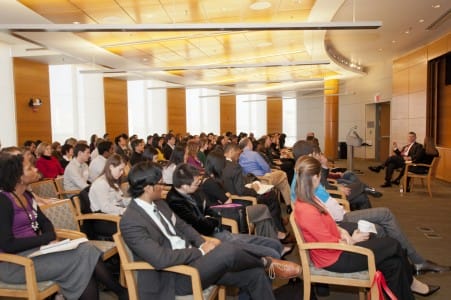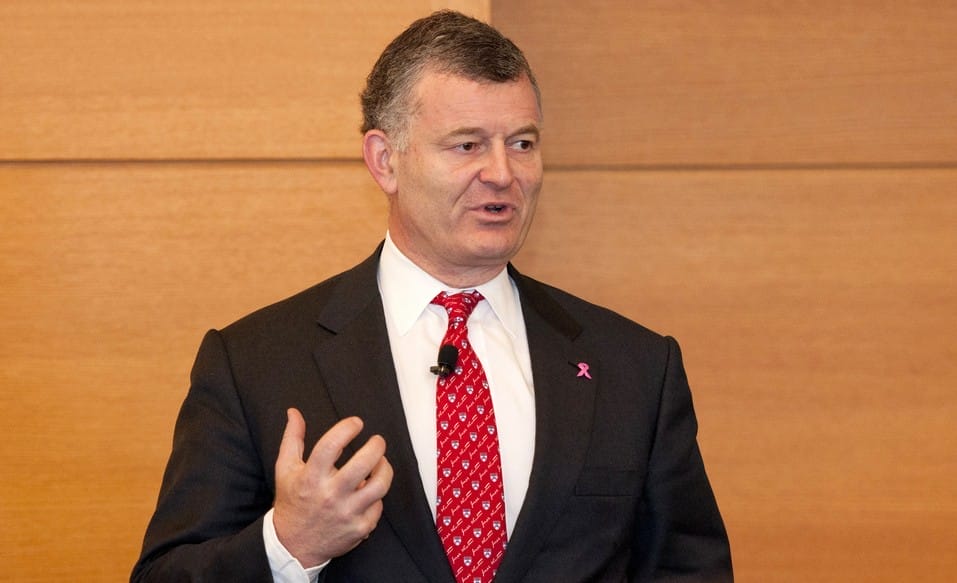William P. Lauder, W’83, executive chairman of the board of directors at The Estée Lauder Cos. Inc., shared his insights about corporate social responsibility at the 2012 Wharton Social Impact Conference.
“Those companies with strong ethical values tend to perform better over the long term,” Lauder stated.
But what mechanisms tie social responsibility and performance? Lauder emphasized the role of employees.
Employees who feel positive about their organization are likely to pass along these positive feelings to customers. Today’s workforce wants to be engaged “in meaningful activities,” Lauder suggested, and he has proof. Estée Lauder participates in a program called “Look Good, Feel Better,” which asks employees to provide beauty advice and guidance to women undergoing chemotherapy and other medical treatments that can take a toll on women’s looks. The program helps these women adapt and feel comfortable in their own skin. Estée Lauder employees are eager to participate, and those who do share their positive feelings of the program and their employer with other employees and consumers.

Attendees at the Wharton Social Impact Conference listen to William P. Lauder, W’83.
Estée Lauder also reaches the consumer directly through programs like MAC Viva Glam. One hundred percent of the purchase price of this product line goes to the MAC Aids Fund. Lauder asserted that this philanthropic support empowers the consumer to feel proud to buy these products.
“If you act and do the right thing on a long-term basis, you will be rewarded because people think well of you,” Lauder said.
“We know that motivated employees and motivated consumers are two of the most important components that drive improved performance of the company,” he added.
But long-term financial stability is not the only reason to pursue social impact activities. Lauder insisted that being socially responsible is part of the foundation, the culture, of Estee Lauder. For his company, he said, failing to contribute to the community is simply “not an option.”
The Wharton Program for Social Impact (WPSI) hosted the Wharton Social Impact Conference, a student-run event that took place on campus on Feb. 3. WPSI brings Wharton’s expertise, entrepreneurial spirit and vast network to bear on the complex intersection of business and social impact by fostering key social impact initiatives throughout the school, thereby furthering the commitment to make Wharton a “force for social good.”
Editor’s note: Visit the Wharton Flickr photostream for the full collection of images from the Social Impact Conference.

























